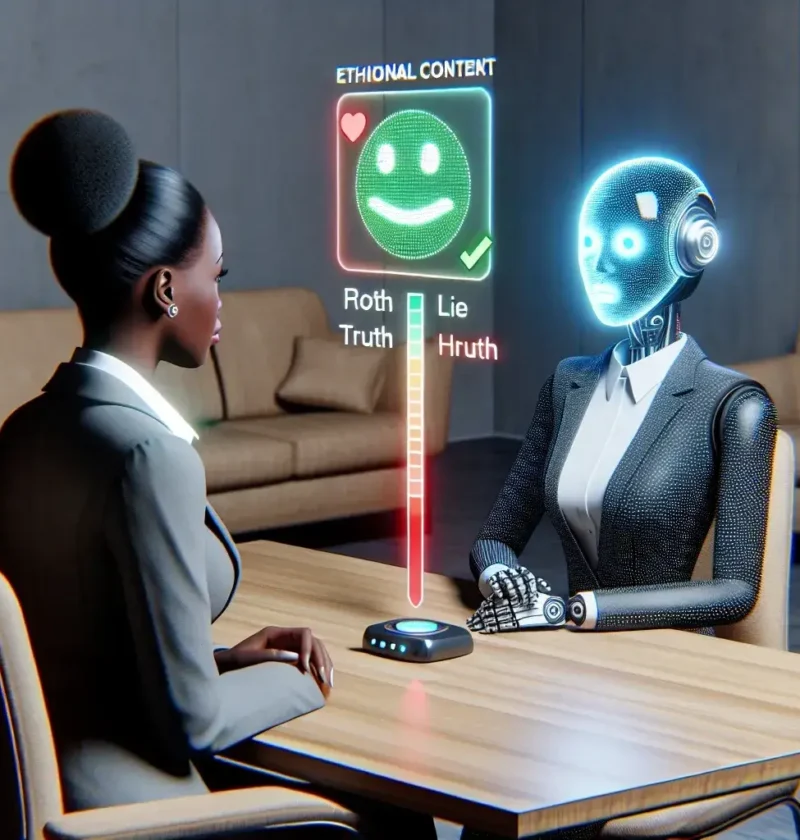Introduction
In today’s rapidly evolving technological landscape, artificial intelligence (AI) is taking a significant role in the recruitment process. One of the most intriguing aspects of this is the use of AI chatbots in job interviews. However, this raises a critical question: is it ethical to lie to an AI chatbot during these interviews? This article explores the nuances of this topic, examining the motivations behind such actions, the potential consequences, and the broader implications for society.
The Rise of AI in Recruitment
AI technology has made its way into various fields, and recruitment is no exception. Companies are increasingly relying on AI chatbots to handle initial interviews, assess candidates, and streamline the hiring process. The advantages of this approach include:
- Efficiency: AI can process applications and conduct interviews faster than human recruiters.
- Objectivity: AI tools can help minimize human biases in the selection process.
- Cost-effectiveness: Automating interviews can reduce staffing costs for HR departments.
Understanding the Role of AI Chatbots
AI chatbots are designed to replicate human interaction in a conversational format. They can ask questions, assess responses, and even manage scheduling. However, their lack of emotional intelligence and contextual understanding raises ethical concerns when candidates consider providing false information.
Motivations Behind Lying
Job seekers may feel compelled to lie to AI chatbots for several reasons:
- Pressure to Succeed: The competitive job market often forces applicants to embellish their qualifications or experiences.
- Fear of Rejection: Candidates may believe that the only way to stand out is to present themselves in the best possible light, even if that means being dishonest.
- Desire for Control: Lying may be seen as a way to manipulate the outcome of the interview in their favor.
Ethical Implications
The act of lying to an AI chatbot raises several ethical concerns:
- Integrity: Lying undermines the fundamental principle of honesty in professional settings.
- Impact on Hiring Decisions: Providing false information can lead to hiring decisions that are not aligned with a candidate’s true abilities.
- Trust in Technology: Frequent dishonesty could lead to a general distrust in AI systems, complicating their integration into hiring processes.
The Consequences of Lying
The repercussions of lying to an AI chatbot can be significant:
- Job Mismatches: Candidates may find themselves in roles that do not suit their true skill set, leading to dissatisfaction and high turnover rates.
- Reputation Damage: If caught, candidates risk damaging their reputations and future job prospects.
- Legal Ramifications: In some industries, lying during the hiring process can lead to legal complications, especially if the dishonesty involves credentials or qualifications.
Expert Opinions
Experts in ethics and AI have weighed in on the issue. Dr. Jane Smith, an ethicist specializing in technology, emphasizes the importance of integrity: “Lying, even to an AI, sets a precedent for future dishonesty and can erode the fabric of professional trust. We must encourage transparency in all interviews, regardless of the medium.”
Real-World Examples
Instances of lying to AI chatbots have already surfaced in the recruitment industry:
- The Case of the Overqualified Applicant: A software engineer inflated their experience on an AI platform, only to struggle in a role that required skills they did not possess.
- The Resume Falsification: A candidate claimed a degree from a prestigious university via an AI interview, leading to scrutiny when the information was verified.
Cultural Relevance
The ethical implications of lying to AI chatbots also vary across cultures. In some cultures, honesty is paramount, while in others, self-promotion through embellishment may be more socially accepted. This cultural lens can influence how candidates approach interactions with AI in job interviews.
Future Predictions
As AI technology continues to evolve, so too will the ethical considerations surrounding its use in recruitment. Future advancements might include:
- Advanced Natural Language Processing: AI chatbots may become better at detecting inconsistencies in responses, making lying more challenging.
- Enhanced Candidate Profiling: AI could utilize big data to analyze candidates’ backgrounds, reducing the chance for dishonesty.
- Greater Focus on Ethics: Companies may begin to prioritize ethical training related to AI interactions in their hiring practices.
A Step-by-Step Guide to Ethical Interaction with AI Chatbots
To promote a more ethical approach to job interviews with AI, candidates can follow a few guidelines:
- Be Honest: Present your true qualifications and experiences.
- Prepare: Familiarize yourself with the common questions asked by AI chatbots to better articulate your answers.
- Seek Feedback: After the interview, evaluate the experience and consider seeking feedback to improve future interactions.
The ethics of lying to AI chatbots during job interviews present a complex intersection of technology, morality, and human behavior. As AI continues to shape the future of recruitment, it is vital for applicants to consider the long-term implications of their honesty or dishonesty. By fostering a culture of integrity and transparency, both candidates and employers can benefit from a more authentic hiring process that promotes mutual respect and trust.

